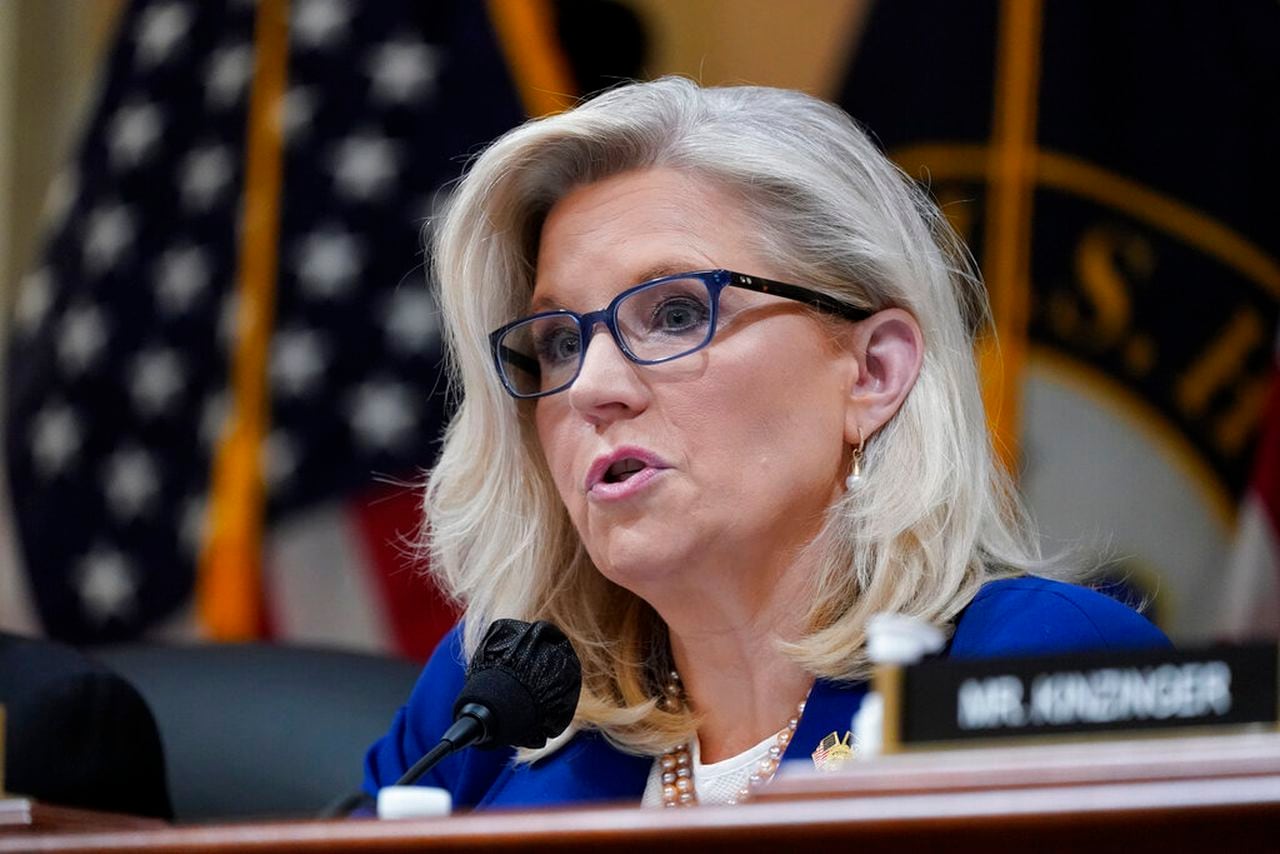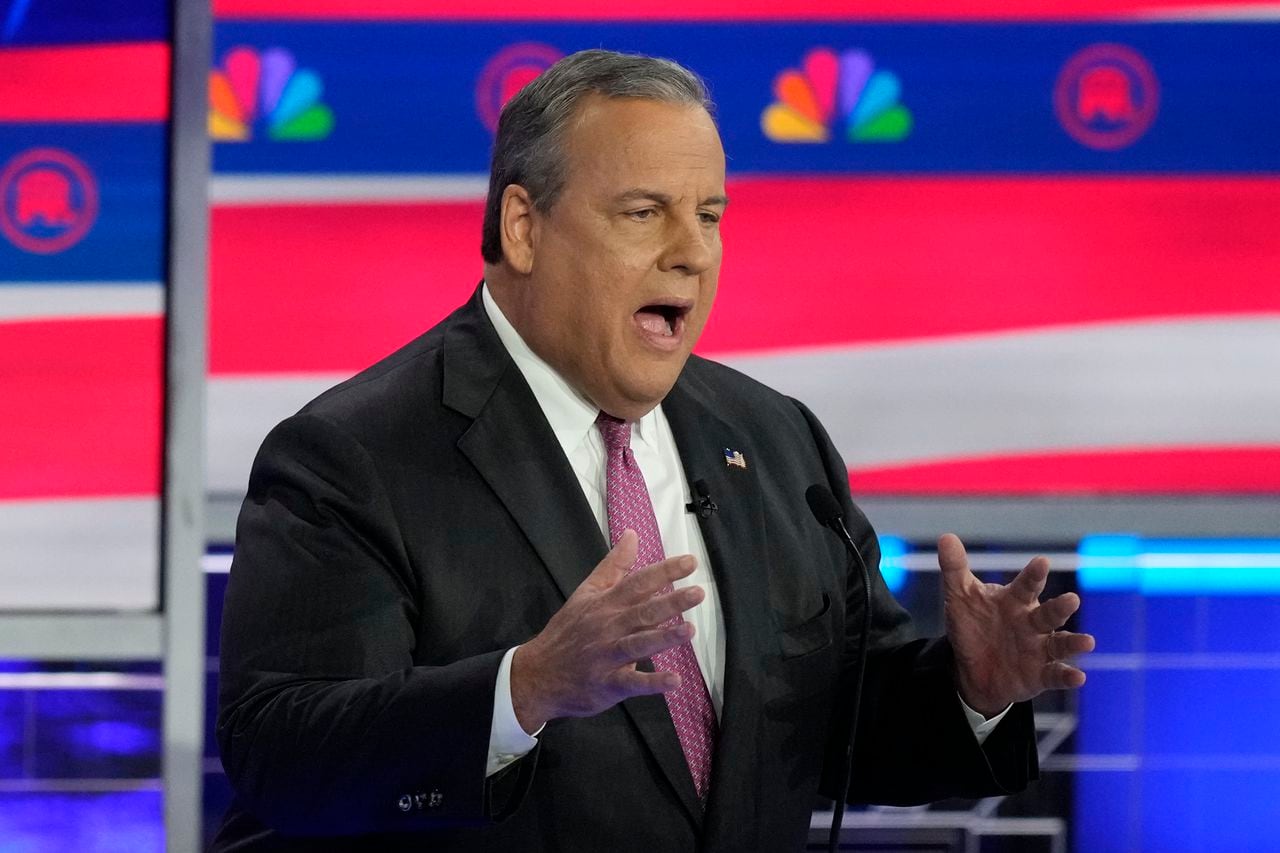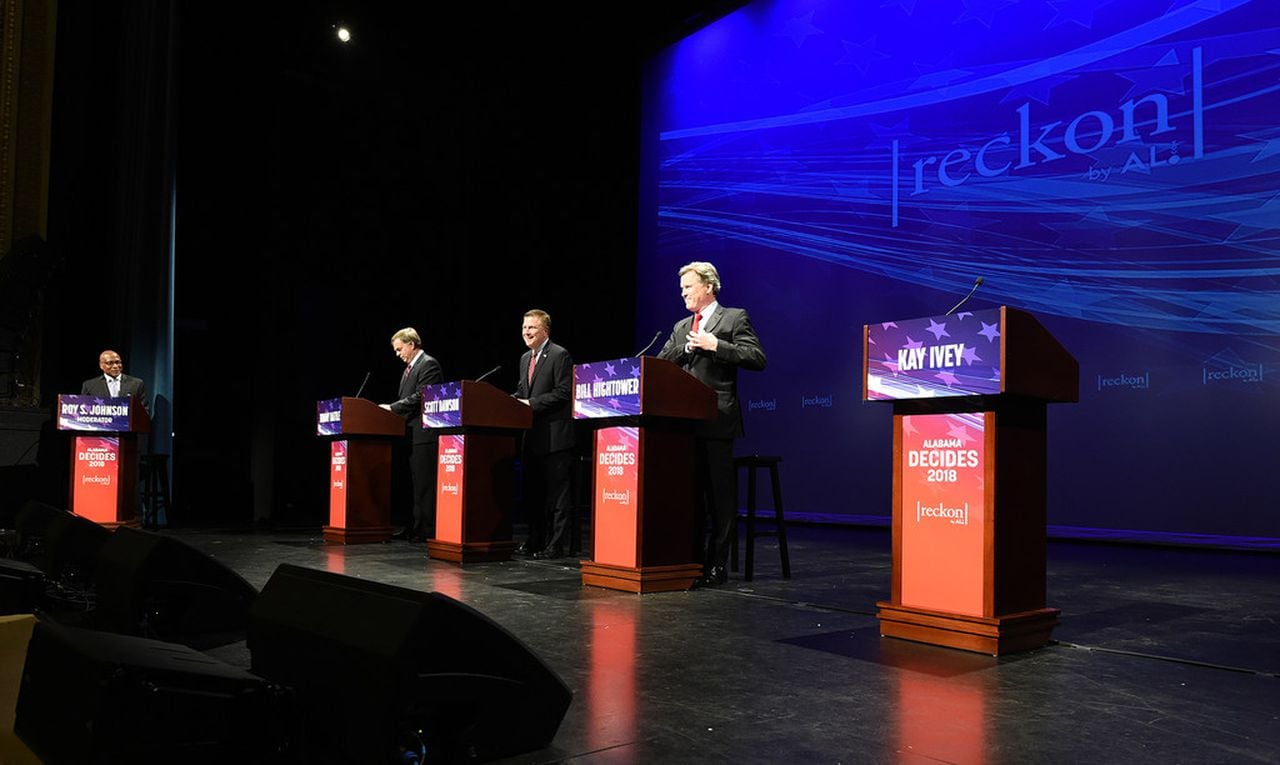How Trump looms large over Alabama GOP debate despite likely no-show
Alabama’s first-ever Republican presidential debate arrives at a time when the headlines about the party’s frontrunner are filled with dire warnings about authoritarianism, dictatorship, and vindictiveness against political enemies.
But whether the concerns about the ex-president emerge during today’s fourth GOP presidential debate at the University of Alabama are unknown. Experts believe the moderators and, especially, the candidates will avoid biting criticism about the ex-president who enjoys a commanding lead in polling.
“There’s no limit on the number of topics the candidates ‘should’ discuss, but it seems unlikely that the conversation will approach those issues in the debate,” said Soren Jordan, an associate professor of political sciences at Auburn University.
He added, “I’m not sure any of the candidates will be anxious to criticize Trump. This is still the state where his approval rating is highest of all the states. The real question is how you differentiate yourself as a candidate without alienating Trump voters. I’m not sure any particular candidate has a good read on that.”
No-show
Trump will not be at today’s debate, unless he makes a captivating last-minute decision to swing by the Frank Moody Music Hall to reunite on the debate stage with Megyn Kelly, one of the three moderators during the debate that will broadcast from 7-9 p.m. on NewsNation. Trump and Kelly famously clashed in a 2015 debate over a question about Trump’s temperament toward women.
Kelly requested on Tuesday that Trump show up for the debate, and there have been some hints that the ex-president might make a surprise appearance. Last month, the U.S. Secret Service conducted a security “sweep” of the Music Hall, raising speculation that Trump might make a showing despite his campaign team telling media outlets that he would not be there.
Trump, himself, also has ties with NewsNation executives, notably Sean Compton, the Nexstar executive overseeing the cable TV network who he called a “winner at everything he does” in a 2020 Tweet.
Some political observers believe the GOP debate, sans Trump, won’t be much of a showing. Former U.N. ambassador and South Carolina Gov. Nikki Haley and Florida Gov. Ron DeSantis are trailing Trump badly in the polls and seem to be vying against each other as the alternative candidate to the ex-president, experts note. Two other GOP hopefuls – entrepreneur Vivek Ramaswamy and former New Jersey Gov. Chris Christie – will be debate participants but are also trailing far behind in polling.
“Under current circumstances, such debates sans Trump would not fill up a high school auditorium because Trump is not only the leading candidate, but in Alabama the only GOP candidate,” said historian Wayne Flynt, a former professor at Auburn. “Were he to attend – which he won’t, because that would lend credibility to his opponents – it would fill up Jordan-Hare Stadium (in Auburn) with 85,000 seeking blood.”
Political strategy
Kay Ivey’s podium stands vacant at the Alabama Republican gubernatorial debate hosted in 2018 in Birmingham by Reckon by AL.com and ABC 33/ 40. (Joe Songer, [email protected])
Trump’s approval rating in Alabama was among the highest in the country before he left office in early 2021. The deep red state has since welcomed the ex-president back on several occasions, most recently during a state Republican Party meeting in early August in Montgomery.
But Trump’s debate snub shouldn’t be a surprise to Alabamians, especially Republicans. It’s a tried and true political strategy that has found a favorable root in Alabama. Ahead of the 2018 and 2022 governor’s races, current Alabama Gov. Kay Ivey shunned all political debates despite criticism from her opponents both Republican and Democrat.
Avoiding debates did nothing to harm Ivey’s political standing. Her polling never took a hit, and the governor easily rolled to primary wins in both 2018 and 2022 without needing a runoff.
“I understand the interest in the debate, but Trump is playing it smart like Kay Ivey does,” said Jonathan Gray, a Mobile-based Republican Party strategist who helped run Scott Dawson’s Republican candidacy for governor in 2018 against Ivey. “There was a discussion that we cannot beat up on each other because the candidate we are running against is not here. Those candidates understood that you couldn’t frivolously throw stuff at Kay Ivey. And when the favorite choice is not there, why tune in?”
Gray said the key for the presidential candidates on stage tonight is to find a way to generate headlines themselves that survive an entire news cycle and avoid Trump dominating the discussion.
“Someone has to come out of this debate being talked about other than Donald Trump,” Gray said. “Any of them or all of them need to be talked about after this debate in a way that changes the news cycle to not be about Donald Trump. If they can get one news cycle about them, that is a ‘W.’”
‘Sleepwalking’ to Dictatorship

Vice Chair Liz Cheney, R-Wyo., speaks as the House select committee investigating the Jan. 6 attack on the U.S. Capitol, holds a hearing on Capitol Hill in Washington, Thursday, Oct. 13, 2022.AP Photo/J. Scott Applewhite
Lately, the headlines have all been about Trump, and the narrative has been about the potential dangers a Trump return to the White House will bring to U.S. democracy.
Two notable moments in the past week:
- The Atlantic Magazine published a special edition of its monthly magazine focused on what a second Trump term would look like, accusing the former president of preparing to weaponize the federal government. Jeffery Goldberg, editor-in-chief of The Atlantic, told CNN he felt a second Trump term “poses a threat to the existence of America as we know.”
- Liz Cheney, the conservative former member of the U.S. House from Wyoming and daughter to former Vice President Dick Cheney, told CBS on Sunday that she feared the U.S. was “sleepwalking into a dictatorship” if Trump is elected president. She also has said that she fears Trump, if elected, will remain in power beyond the next four years in office.
Will concerns about the democracy even surface during a GOP primary debate? Skeptics abound.
“My personal view is it would be important for more Republicans to push back against the let’s say, more problematic tendencies sometimes displayed by the former president,” said Regina Wagner, assistant professor of political sciences at the University of Alabama. “I unfortunately think it is unlikely they will due to the strong support Trump continues to enjoy from the base.”
Jaclyn Bunch, associate professor of political sciences at the University of South Alabama, said that scholars are unified on their concerns that “threats to democracy” should be addressed by Republicans.
She referred to an October article in The Economist which details how a “MAGA makeover” of state parties in swing states is driving away donors.
“Overall, if the Republican Party wishes to strengthen its position in the long term, addressing the vocal radical extreme must be a top priority,” Bunch said. “Apart from donations, a prevalent lack of faith in democracy has the potential to erode the foundations of our country, threatening the safety and longevity of the United States from within. There is also increased evidence that authoritarian rhetoric and anti-democratic trust is alienating the new generation of Republican voters.”
‘Delicate dilemma’

Republican presidential candidate former New Jersey Gov. Chris Christie speaks during a Republican presidential primary debate hosted by NBC News, Wednesday, Nov. 8, 2023, at the Adrienne Arsht Center for the Performing Arts of Miami-Dade County in Miami. (AP Photo/Rebecca Blackwell)AP
Aaron Kall, director of debate for the University of Michigan’s Debate Program, said he anticipates the four candidates to “mostly again stay clear” of Trump. He noted that past efforts to criticize Trump during a debate – notably, Christie’s suggestions that Trump should be disqualified from being President during the first GOP debate in Milwaukee in August – drew loud boos.
“The moderators won’t talk about Trump much because they don’t want to reward him for not participating in the debate,” Kall said. “The candidates are free to pivot back to Trump whenever they wish, but they’ve largely avoided doing this out of fear of alienating voters they need to win the Republican primary.”
Kall noted how no one has been able to successfully navigate “this delicate dilemma.”
“I don’t expect them to magically figure it out before Wednesday night,” he said.
The lack of criticism directed at Trump or efforts to chip away at his commanding polling lead is also prompting the question from experts: What’s the point?
“What are we trying to win here?” Gray said. “The race seems to be about DeSantis and Haley (for the alternative to Trump). But the question is, ‘What race?’ Is there someone who doesn’t believe Donald Trump will not get the Republican nomination at this point?”
Gray said there is no guarantee that even if Trump is convicted of a crime – he faces 91 charges across four criminal cases that include, among other things, his activities surrounding the 2020 election and Jan. 6, 2021, riot at the Capitol – he will be kicked off ballots, elevating the No. 2 running Republican in the field.
“I understand that in this day and age to millions of people, it will be unfathomable that a man convicted of crimes could be elected President of the United States,” Gray said. “But if those (voters) believe he’s being persecuted, it’s likely he could get elected. And to Republicans, (there is a view that) this is nothing short of a full-throated political persecution.”
Ahead of the debate, NewsNation/Decision Desk HQ News released a poll that showed a majority of survey respondents – 57% — support disqualifying Trump from the ballot if he’s convicted in one or more of the criminal cases. There are sharp partisan differences – only 29% Republicans support his disqualification, compared to 85% of Democrats.
Trump’s lead in the polling hasn’t been affected from the criminal cases, or from the debate no-shows. After last month’s debate, polling showed very little bump for Haley, who was considered the clear winner.
“With each debate, Trump’s lead in national and early state polling has only increased despite some solid performance delivered specifically by Haley and DeSantis,” Kall said. “During debates, candidates often focus their ire against opponents in their sightlines on stage and forget the real target they need to attack may actually be thousands of miles away.”
